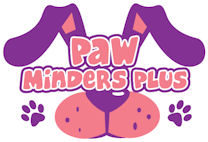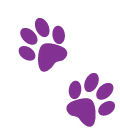Pet Care Articles
In April, Diamond Pet Foods announced a voluntary recall on three brands of pet food because of concerns the food was contaminated with salmonella. In May, two more recalls involving several brands of dry dog and cat foods were issued. The latest recall includes foods that were distributed in Missouri. Some of the recalled foods include Diamond Naturals Small Breed Lamb and Rice Formula, Chicken Soup for the Pet Lover's Soul, Canidae, Taste of the Wild and Kirkland. For a complete list of involved foods, production dates and areas of distribution, go to www.diamondpetrecall.com.
The main concern with this recall is pet owners who become ill after touching the pet food, cross-contamination of their own food with products that touched the affected pet food, or direct contact with an infected pet. According to a May 11 report from the Centers for Disease Control and Prevention, confirmed outbreak cases have been documented in Alabama (1), Connecticut (1), Michigan (1), Missouri (3), North Carolina (3), New Jersey (1), Ohio (2), Pennsylvania (2) and Virginia (1). Five people were hospitalized. One Canadian case was reported by the Public Health Agency of Canada.
Symptoms of salmonella infection in people can include fever, nausea, vomiting, abdominal pain or cramps, and diarrhea (often with blood) lasting more than three days. Symptoms in animals are similar and include loss or lack of appetite and lethargy. Pets can be infected with salmonella but show no symptoms. Unaffected pets might still shed the bacteria in their feces and serve as a source of infection to other animals and humans.
If you suspect your pets have been eating any of the foods involved, stop feeding and handling the food. Wrap any unused food in a closed plastic bag, secure the top and place it in a sealed trash container to prevent any other animals, including wild animals, from eating it. Use gloves to clean any surfaces or containers that might have contacted the food.
Salmonella can be shed in the feces of pets for 4-6 weeks after infection, so use caution when cleaning up after your pet. All stools from a suspect animal should be immediately picked up and disposed of in a secure container. Family members should wash their hands for at least 20 seconds with soap and water after handling any potentially contaminated surfaces or pets.
Other recommendations for avoiding cross-contamination with pet products include feeding your pet in a room other than the kitchen, washing pet bowls and scoops with soap and hot water regularly, and not washing these items in kitchen sinks or bathtubs. Do not use the pet's feeding bowl as a scooping utensil — use a clean, dedicated scoop or cup.
If you are concerned that you or your pet have been affected by or exposed to salmonella, contact your physician or veterinarian. Prompt diagnosis and treatment are needed to prevent potential complications.


